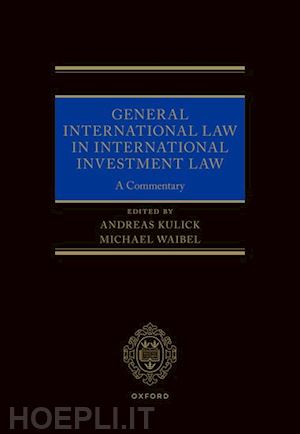General international law is part and parcel of investor-state arbitration. This is the case not only regarding treaty law and state responsibility, but also with respect to matters such as state succession, the international minimum standard, and state immunity, all of which feature regularly in investor-state arbitration. Yet, although general international law issues arise in almost every investment case and often require extensive research, no systematic exploration of the relationship between the two exists. This Commentary is the first to fill this gap, providing a comprehensive treatment of the role of general international law in international investment law. It engages in detail with central matters of general international law, including in the practice of investment arbitration tribunals, moving beyond existing works which focus solely on procedural and institutional provisions. The Commentary's forty-six chapters do not focus on a single source or subject. Instead, each concentrates on a specific, relevant article from a particular source of public law - such as the Vienna Convention on the Law of Treaties (1969) or the International Law Commission's Articles on the Responsibility of States for Internationally Wrongful Acts (2001), among others. The entries combine detailed analysis with an examination of procedural and substantive aspects - such as nationality and unjust enrichment - and respond to the following questions: how have investment tribunals interpreted and applied the specific rule of general international law? To what extent and why does such interpretation and application align with or deviate from the practice by other international courts or tribunals? How could and should investment tribunals interpret and apply rules that have yet to feature in investment arbitration? This unique format means this commentary will serve as a central guide for all relevant case law and scholarship on international investment law.











